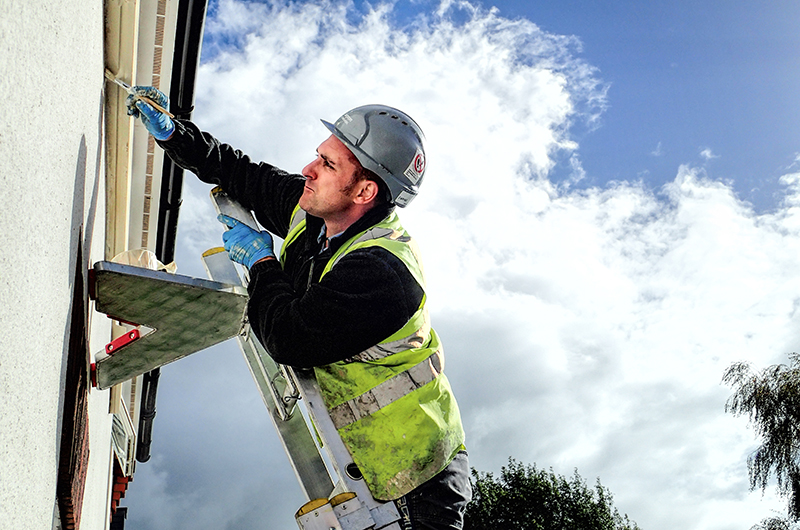
REPAIR specialists could help counteract a skills gap in the UK construction industry following an exodus of EU workers.
That’s the view of Gary Danson, operations director of surface repair company Plastic Surgeon, who believes that a declining availability of skilled tradespeople will make it “increasingly essential” for contractors to turn to other resources.
Employers have expressed concerns about the availability of skilled workers – and potential rising labour costs – ever since the Referendum on the UK’s membership of the European Union in June 2016.
With the deadline for Brexit getting ever closer, the construction sector awaits the potential ramifications.
A ‘skills drain’ has been forecast by some, while a CITB report predicted the UK sector will need an additional 158,000 workers over the next five years. In Scotland alone, the sector must find 10,000 new workers to meet demand.
Gary Danson told Project Scotland that Brexit has resulted in a “looming cloud of uncertainty hanging over any future decision-making” in the minds of many people in the construction industry.
“Whatever your personal opinions on the EU, it’s undeniable that the Brexit vote is already having repercussions – even with so many aspects currently undecided and up in the air,” Gary said.
“Fear of the unknown and apprehension over what’s to come is fostering many insecurities. One of the foremost fears of those harbouring doubts over the impact of Brexit is that skilled workers originating from the EU will simply head back over the Channel to work elsewhere once the Brexit bill is eventually passed.
“The resultant gap in the workforce then stands no chance of being plugged thanks to restrictions on any further migration, leaving construction industry leaders to worry key projects will fall behind schedule, incurring higher costs amid widespread disruption.
“These fears are both understandable and, indeed, plausible.”
The situation is far from all doom and gloom, however. Gary said there has always been demand for skilled tradespeople and, despite a shortage of skilled labour, the sector has managed to “thrive and expand”.
“We’re confident that the construction industry can cope with the impact of Brexit,” he added.
“Obviously, a core part of coping involves the acceleration of training and the expansion of UK-based recruitment to try and bolster existing resources. But this isn’t the only solution worth looking at as other methods can offer support, helping to ease the stress on project managers.
“Surface repair, for instance, is a prime example of an oft underexploited service that can offer its assistance.
“Repair specialists command a broad range of capabilities that can help to ease the burden on overstretched trades. Often, if there’s damage to a surface, a specific tradesperson – such as a carpenter, plasterer, tiler or plumber – tends to be the first port of call, with replacement the thing foremost in mind. However, finishers – the industry term that we at Plastic Surgeon use for our repair specialists – have a wide skillset covering any number of substrates and surface types, which means they’re able to make wide ranging repairs, freeing up trade resource.
“The number of things that can be repaired far outweighs those that can’t.
“Our specialists are able to put right damage to brick, stonework, concrete, metal, glass, ceramics, plastics and more.
“If, taking a housebuilding site for an example, multiple incidents of damage have occurred during a home’s construction (something that’s practically inevitable during busy projects), we can come in and make multiple repairs at a time.
“This saves both time and money, as the damage is rectified quickly, while also negating the need to recall multiple trades to the site. It also frees those trades up to progress with other work – namely, that of actual construction, while being considerably cheaper than full replacement.”








